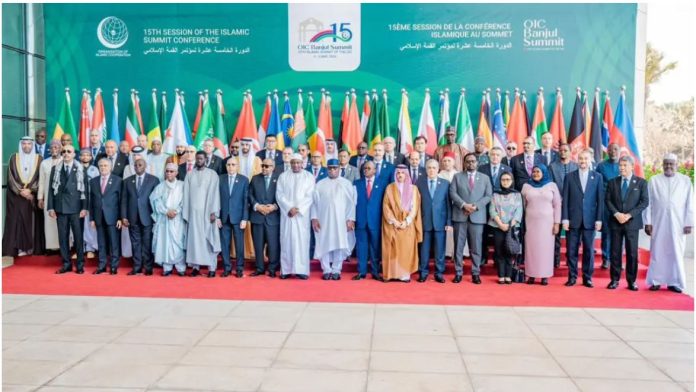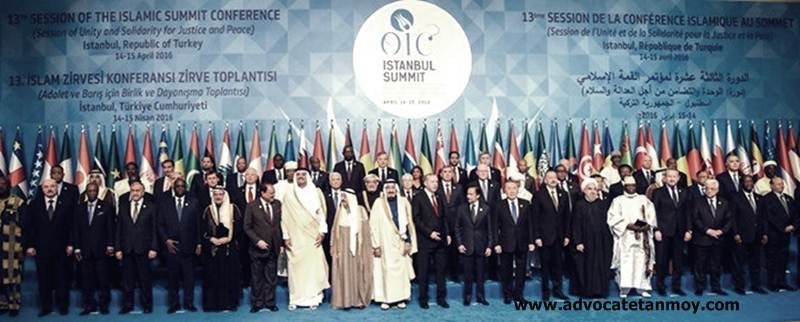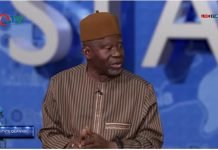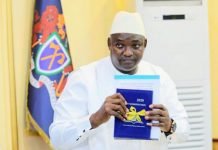
By Arret Jatta
In a world where cultural diversity and global cooperation are paramount, understanding the role and functions of the Organisation of Islamic Cooperation, OIC (formerly Organisation of the Islamic Conference), is essential.
Last week, The Gambia became the focus of global attention as host of the 15th OIC Summit.The OIC is a 57-member organisation of Muslim-majority countries, and the second-largest intergovernmental organisation after the United Nations.
However, local media coverage of the summit, specifically newspapers, appeared to fall short of explaining what the OIC is, how and why it was founded, its functions, and significance.
We scanned through 55 newspaper articles about the summit published before, during and after the summit here, here, here and here – all of which have very limited background information and context in their reporting on the summit and the organisation.
This explainer seeks to fill that information gap with a closer look at the history, function and significance of the Organisation that calls itself “the collective voice of the Muslim world”.
When was the OIC founded?
The OIC was established by the decision of the First Islamic Summit Conference held in Rabat on 22-25 September 1969, upon the reactions of the Islamic World, provoked by the arson attack a month earlier on the Al-Aqsa Mosque, the third holy site in Islam and located in Israeli occupied Jerusalem. That conference, which established the OIC, was attended by 24 countries.
Since then, issues relating to Palestine have been central to the OIC’s agenda, including in summits and various conferences. The organisation has continuously condemned Israeli aggressions against the Palestinians.
The name of the organisation was changed to the Organisation of Islamic Cooperation (OIC) at the 38th meeting of the Council of Ministers of Foreign Affairs (CFM) held in Astana on 28-30 June 2011. The Office of Secretariat General was established at the 1st Meeting of the Council of Ministers of Foreign Affairs in March 1970, a Secretary General was appointed, and it was decided that the Secretariat would operate in Jeddah until the liberation of Jerusalem.
The OIC has held multiple summits since its inception, and the 15th Summit of Heads of State and Government was held in Banjul from 4-5 May, 2024.
What are the roles and objectives of OIC?
The objectives of the organisation is to strengthen cooperation and solidarity between the Member States and to protect the rights and interests of the Islamic World.
According to a report on Al- Jazeera, the OIC charter aims to preserve Islamic values, safeguard and defend the national sovereignty and independence of member states and to contribute to international peace and security. While the organisation has been known for its cultural and social projects, its political influence has been relatively limited.
How does the OIC operate?
The OIC holds an Islamic Summit once every three years. At the summit, heads of state discuss ways to achieve the OIC Charter‘s objectives and make policy decisions that concern its member states.
Meeting on a more regular basis, the council of foreign ministers convenes annually to evaluate the implementation of the organisation’s policies and objectives. The General Secretariat, the OIC’s executive body, is responsible for implementing those decisions.
What are the significance of being a member of the OIC?
Being a member of the OIC is significant for countries as it provides a platform for cooperation and collaboration among Muslim-majority nations.
Over time, the OIC established specialized agencies, standing committees, and agencies for various objectives and specific tasks. Following the strengthening of other institutions, the OIC began focusing on topics like financial governance, humanitarian activities, education, and research. The OIC broadened its reach by assisting member nations in their growth in several areas of life.
In a short period of time, the Islamic Development Bank (IsDB) grew to become the largest financial organisation in the Muslim world. The IsDB became the OIC’s financial powerhouse, initiating several initiatives for the development of OIC member states. The establishment of the IsDB as a specialized institution of the OIC has provided a glimmer of hope for the Muslim world’s economic prosperity.
The OIC Charter
The first OIC Charter was adopted by the 3rd ICFM Session held in 1972. The Charter laid down the objectives and principles of the organisation and fundamental purposes to strengthen the solidarity and cooperation among the Member States.
The Charter was amended to keep pace with the developments that have unraveled across the world. The present Charter of the OIC was adopted by the 11th Islamic Summit held in Dakar on 13-14 March, 2008 to become the pillar of the OIC future Islamic action in line with the requirements of the 21st century.
OIC Bodies/Organs
Among the OIC’s key bodies are the Islamic Summit, the Council of Foreign Ministers (CFM), the General Secretariat, the Al-Quds Committee, and three permanent committees concerned with Science and Technology, Economy and Trade, and Information and Culture.
There are also specialized organs under the banner of the OIC including the Islamic Development Bank and the Islamic Educational, Scientific and Cultural Organisation, as well as subsidiary and affiliate organs that play a vital role in boosting cooperation in various fields among the OIC member states.

Political limitations & Influence
While the OIC sees itself as the collective voice of the Muslim world, it has been criticized in academic research and other platforms as lacking a “unified voice”, with member states sometimes divided over the Palestinian cause.
According to Mamoon Alabbasi, a political analyst focusing on the Middle East and North Africa region, while the OIC has relative political weight, its rhetoric does not always translate into action on the ground.
“With 57 member states… the OIC carries a [relatively] heavy political weight… [and] impact. But how much change that makes on the ground is not always clear,” Alabbasi is quoted by Al Jazeera as saying.
Adding to its political limitations is its inability to unify its stance on issues, experts say.
“Like other international organisations, such as the UN General Assembly, the OIC is supposed to have a unified voice but it does not because policies of the individual countries greatly differ,” Alabbasi said. “Most importantly, the OIC doesn’t have a unified voice because most of its member countries are not democracies. So, while their populations may be in agreement [over an issue] they do not always represent the views of their populations.”
Sami Hamdi, a Middle East expert, told Al Jazeera: “The OIC has a broad spectrum of different cultures. This means that on the political front, even if there is a united stance, it means very little, practically.”
“Typically, in the past, the OIC has been effective in promoting cultural and educational projects across the Muslim world,” Hamdi said. “However, its political capabilities remain severely limited.”
















Thank you for your tremendous deep diving in the IOC. Great work.